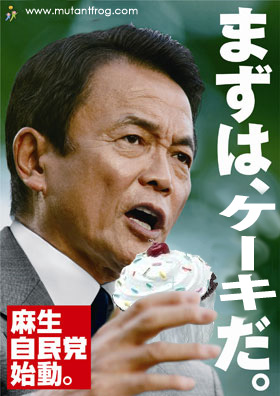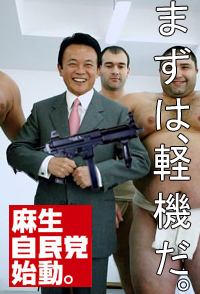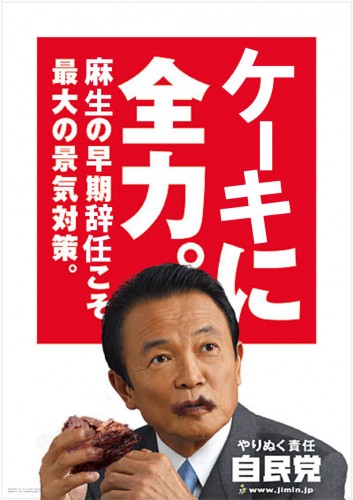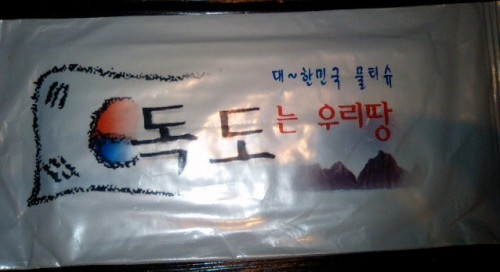My recent post about the eikaiwa industry by the numbers has made the rounds of a couple ESL job forums, and it seems to have a few people worried. My intention wasn’t to scare people off of English teaching entirely – the demand for learning English is high in this country, and while there is something of an oversupply of teachers amid slumping sales, Japan possesses some serious advantages, such as high living standards and the rule of law, that make it a better choice than some other destinations. So if some of them are still reading this blog, I just want to remind them that English teaching isn’t dead in Japan. The issue is just that the business is headed for a rough patch, not that every teacher will have to put up with crappy wages and dismal work conditions, though that may be true for many.
The private-sector eikaiwa industry appears to be hurting badly, ever since various events in 2006 led to the ignominious business suspension, flailing attempt to save through shady financing deals, and eventual collapse of former industry giant NOVA (so carefully documented by the Japan Economy News blog) shattered the image of a once booming industry and, with the disappearance of the well-known NOVA rabbit mascot, symbolized the sudden end of long-running profit machine and source of easy employment for thousands of young Westerners interested in life in a new country. The rest of the “big four” schools also faced serious difficulty, most notably LADO which is no longer with us.
Today I want to pass on some things I learned after learning about the worsening management-worker relations at Berlitz Japan:
Benesse – happily cleaning up after NOVA?
Benesse, a long-time provider of education services, chiefly juku, jumped feet first into Japan’s English conversation market when it acquired veteran language teaching company Berlitz International in 2001. The company caught my eye when some of its unionized teachers in Japan were sued on grounds that they striked illegally. Without commenting on the merits of the dispute itself, I would like to react to one passage of the Japan Times article (while I am generally pro-union, I simply don’t know enough about the case to have any opinion one way or the other. Feel free to discuss in the comments though!):
The financial health of Benesse Corp., Berlitz Japan’s parent company, also influenced the timing of the strike. In their annual report for the financial year ending March 31, 2008, Benesse recorded their highest-ever earnings. Operating income grew 11.4 percent and Berlitz International Inc. achieved its best result since being bought by Benesse. Operating income for Benesse’s language company division rose 36 percent from the year before to ¥6.35 billion, in part due to higher revenues and profits at Berlitz International, which benefited from “an increase in the number of lessons taken worldwide, particularly in Japan and Germany,” according to the report.
Curious about exactly how Berlitz is boosting its “number of lessons,” I decided to take a closer look at their latest annual report for FY2007 (PDF) in the hope that they would explain exactly how they could enjoy such growth as the industry as a whole is caught in a horrific vortex. It is also interesting to see Berlitz on the rise, considering that it had long lost market share to the other big chains. I came up a little disappointed, as annual reports are not the place to broadcast your super-secret business strategy to the world. But one passage did at least seem to hint that they were up to something:
[As for the business environment of] our language business area, while there are concerns over the global economic slowdown, the demand for language learning remains robust. However, in Japan the collapse of a major language school has led to increased selectivity of language schools among customers. (Page 11)
Considering that they are giving record numbers of lessons in Japan, one can assume that while they won’t come out and say it, this explicit mention of a flight to quality means they must be enjoying some benefit from former NOVA students in need of tutelage. Plus, they have maintained one of the world’s strongest language teaching brands, and they don’t seem to have had the same customer service problems as NOVA, whose six-month business suspension for unfair refund policies spelled doom for the company.
Other wisdom from Benesse
In addition, it is interesting to note that the management decided to explicitly state an intention to use between 20 and 30 billion yen for acquisitions over the medium to long term, including in the language business (Page 18). Could they be looking to scoop up some underperforming rival to pick up more market share?
In the business risk section of the report, they remind investors that while they are prepared for the conventional consensus on Japan’s shrinking population (their main business is juku, so fewer kids = bad), their business will be screwed if the population ages even faster than expected.
They are also worried that the government’s measures to combat declining educational standards as measured by the international PISA tests. The measures as listed by Benesse (to be implemented between 2009 and 2013) fall under the banner of “life skills” and include more classroom time throughout the curriculum, mandatory English instruction at elementary schools, as well as “training to develop skills in using knowledge and not merely acquiring basic knowledge.” They worry that this “increased diversification of demand” could negatively impact their business if it progresses at a more sudden pace than expected. In other words, juku have traditionally filled the gap left by the deficiencies in classroom instruction, so if the schools actually get their act together then Benesse (and to a lesser extent Berlitz) could be in trouble.




 And finally, regular poster Jade OC tried his own variant on the cake theme, which I think came out very well. This cake is no lie.
And finally, regular poster Jade OC tried his own variant on the cake theme, which I think came out very well. This cake is no lie. Come on people. Aso’s approval rating is working on a new record low and the LDP is on the slow train to dumpsville. The least you can do is help out with a new campaign poster. Send it in at an attachment or post a link and it’ll be added to the collection.
Come on people. Aso’s approval rating is working on a new record low and the LDP is on the slow train to dumpsville. The least you can do is help out with a new campaign poster. Send it in at an attachment or post a link and it’ll be added to the collection. 